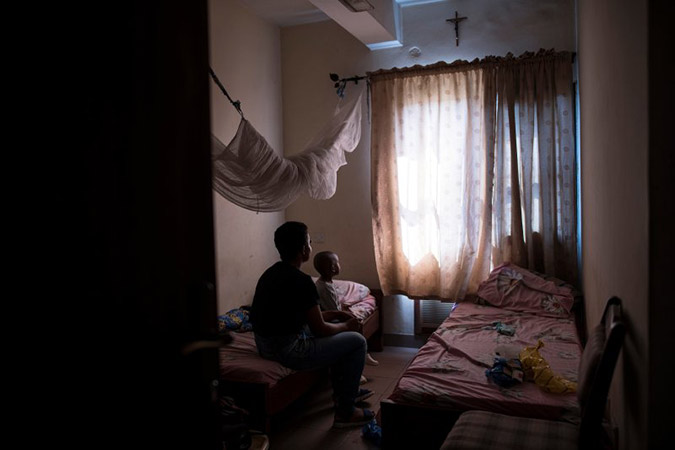COVID-19 Lockdowns Left Nigerian Trafficking Survivors Stranded

The three young women agreed they would escape by nightfall. They didn’t have any money or documents, but Jessica, 19, and her friends knew it was time to go. The brothel was not as crowded as usual: since the start of the coronavirus outbreak, the client base had fallen. Together, they waited for night to settle and for the madam to retire to her room. Then, they sprinted for the highway that runs through Papara, a town in the far north of the Ivory Coast, close to the border with Mali.
Jessica and her friend, Favor, had been trafficked into prostitution about a month earlier. (Both women, as well as the other survivors of trafficking in this story, asked TIME to use only their first names out of safety concerns.) Back in February, a female friend to both girls’ families in Nigeria had promised them jobs in a clothing factory in the Ivory Coast. Udochi, 20, had been trafficked in a similar manner earlier in the year. Upon arrival in Papara, all three women found themselves in a brothel, where the madam forced them to have sex with multiple men for a daily salary of $1.29.
The women fled the brothel in March, but almost four months later they are still in the Ivory Coast: three out of hundreds of trafficked Nigerian women who anti-trafficking advocacy groups believe are stuck abroad during the COVID-19 pandemic, as border closures hamper repatriation efforts across the region. When the Nigerian government imposed a state of emergency lockdown in March, they paused international flights in an attempt to curb the infection’s spread and unwittingly left trafficking survivors stranded in dangerous locations far from home. Now these women are anxiously awaiting evacuation from across Africa and the Gulf, as authorities contend with towering logistical hurdles involved in organising safe flights and the virus continues to rage around the world.
Read full article here: TIME